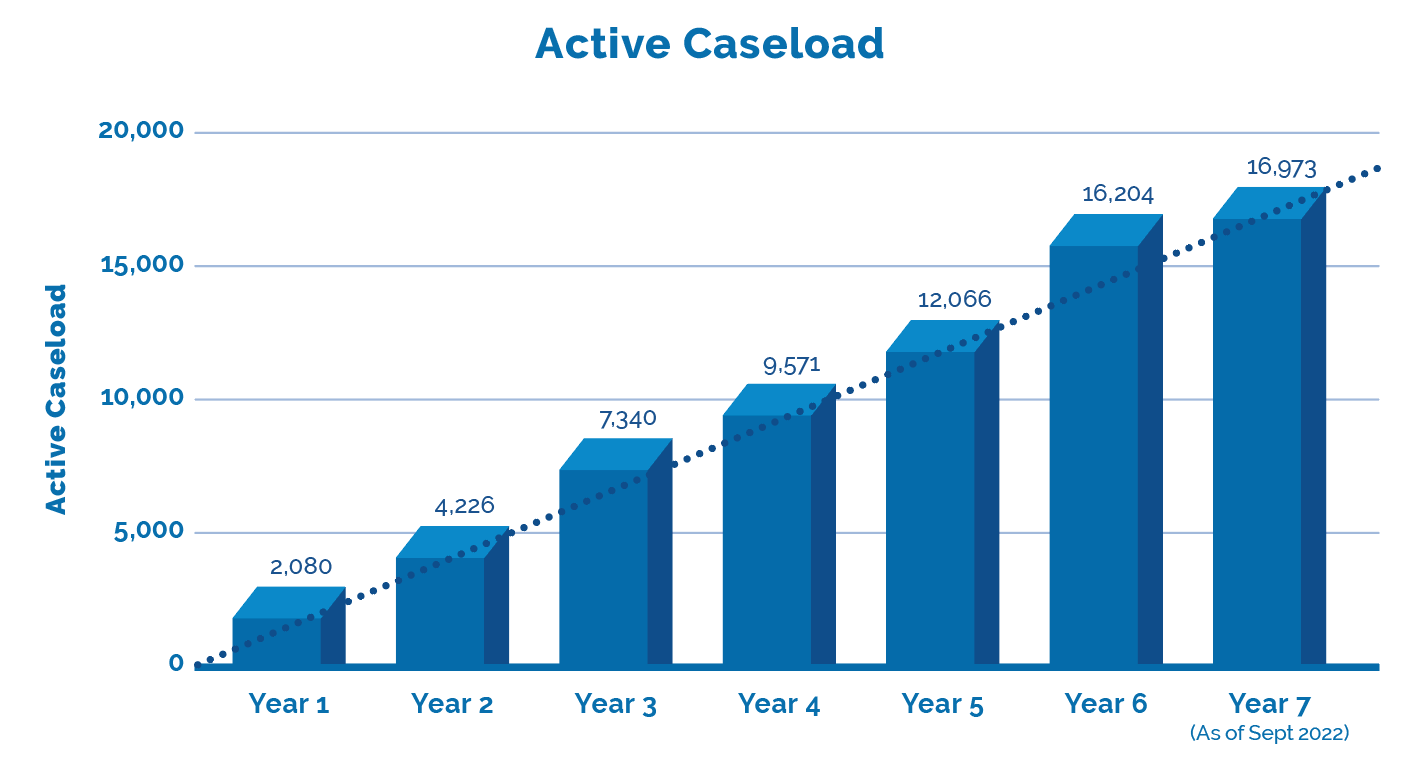
Volume. 7 Issue. 15 – April 26, 2023
Three Marked Impairments Confirmed for Post June 1 CAT
This week the Tribunal considers a case wherein the applicant, in Good Days and Bad Days after consuming the entirety of the available $65K limits, sought a CAT designation based upon having sustained three marked impairments.
LAT Update – What Difference Did A Year Make?

The LAT released Performance Stats up to mid-year 7 which is current through to the end of September 2022. Together with the LAT’s last update we can now provide a comparison of year over year, with projections through to the end of year 7 in this annual update. What difference did a year make?
Three Marked Impairments Confirmed for Post June 1 CAT
Good Days and Bad Days – Injured in a February 2018 accident, the applicant Simmons, in 20-012739 v Belairdirect, sought a CAT determination, having exhausted the entirety of the available $65,000 medical limits.
Simmons contended that she sustained class 4 marked impairments in activities of daily living, social functioning, and adaptation. Belairdirect agreed that there was a marked impairment in activities of daily living, and a class 3 (moderate) impairment in the other three areas of function. Belairdirect further submitted that the accident did not cause the applicant’s impairments.
With respect to causation, the Tribunal noted that all assessors, including those of Belairdirect, confirmed at least one mental or behavioural disorder. Further, that Belairdirect themselves conceded that the accident was one of the contributing factors to the applicant’s impairments due to mental or behavioural disorder. However, they suggested that pre and post accident incidents contributed to the ongoing impairments. The Tribunal, accepting that the accident was not the sole cause, noted that is not what the “but for” test requires. Rather, “the accident must be a necessary cause of the applicant’s impairments but need not be sufficient in itself to cause those impairments…By the respondent’s own admission, the accident meets this test. In any event, there is abundant evidence that the accident was a significant cause of the applicant’s mental and behavioural disorders and the resulting impairments.”
Turning then to the severity of the impairments (with both parties agreeing that there was a class 4 (marked) impairment in the domain of ADL), the Tribunal considered whether Simmons exhibited marked impairments in social functioning and adaptation. Simmons was found to suffer from a marked impairment in social functioning. It was noted that “one of the most dramatic changes in the applicant’s functioning after the accident was her emotional volatility. She became short-tempered, aggressive, and profane. She would be easily overwhelmed in stressful situations and prone to panic attacks and emotional breakdowns. She would provoke and escalate conflict with others.”
The records reflected that Simmons was “significantly impeded in her ability to interact appropriately and get along with others, including her family, treatment providers, and members of the public. This is evidenced by many instances of verbal and sometimes physical altercations.” Belairdirect submitted that Simmons “largely does act appropriately in social situations, her impairment is consistent with some but not all useful functioning and is therefore moderate.” The Tribunal did not accept this argument, citing the AMA Guides that state “it is not only the number of aspects in which social functioning is impaired that is significant, but also the overall degree of interference with a particular aspect or combination of aspects.” Simmons’ inability to handle stress and conflict that inevitably arise “and the magnitude of the inappropriate behaviour that can ensue are sufficient to establish that her functioning is significantly impeded.”
The Tribunal found as well that Simmons suffered a marked impairment in the domain of adaptation. Particular emphasis was placed upon the OT situational assessment that the assessor described as “bizarre” and highly unusual”, with the instances of impaired social functioning also serving as examples of decompensation. In addition, the OT assessment commissioned by Belairdirect was said to be consistent with the OT report for Simmons, despite contrasting conclusions. The Belairdirect report did contain “signs of decompensation and refused to complete some tasks, but generally managed to maintain her composure.” It was suggested however that this was “a quantitative rather than a qualitative difference in her performance. Had (Belairdirect assessor) pushed the applicant a little further, she may well have provoked a similar reaction as did (Simmons’ assessor).”
Belairdirect contended this to be evidence of a moderate impairment, as Simmons “does not decompensate in all stressful situations.” In response, the Tribunal found that it “would be unduly onerous to require that the applicant decompensate in any situation involving any amount of stress to establish a class 4 (marked) impairment. That would arguably be closer to the test for a class 5 (extreme) impairment.” Accordingly, Simmons was found to have satisfied the criteria for marked impairments across 3 domains, therefore attaining the CAT designation.
The Tribunal found it necessary to comment further upon the report of Belairdirect’s expert, noting it to be “perplexing that the applicant gave such a positive account of her mental health to (the assessor).” The Tribunal found that the most logical explanation for this would be that “the assessment happened to occur on one of her better days”. The assessor’s “account of the applicant’s presentation and level of functioning is an outlier.”
During cross examination, the assessor indicated that following a review of Simmons’ medical records “his opinion did not change because it was based on how he found the applicant at the time of his original assessment.” The Tribunal found that “In giving primacy to his own observations of the applicant, (the assessor) did not give sufficient weight to the evidence documenting her ability to handle stressful real-world situations.
Access inHEALTH’s research resources through Live Chat and receive your OAR. Get It now!